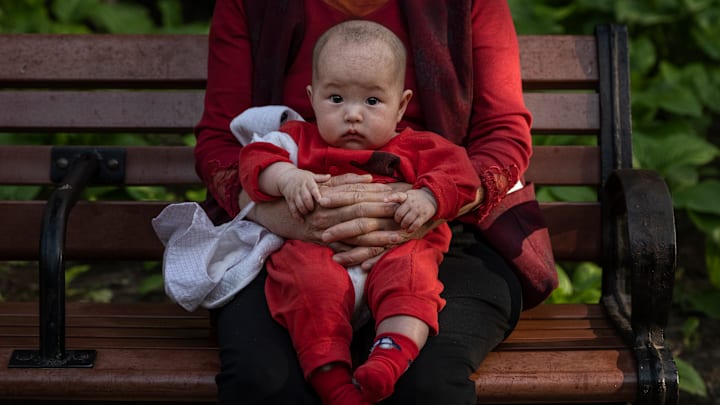Baby's First Year: A Month-by-Month Guide

The first year of your baby's life is filled with incredible growth and development. Each month brings new milestones and changes, making it an exciting and sometimes challenging journey for new parents. Here's a month-by-month guide to help you understand what to expect and how to support your baby's development during their first year.
Month 1: In the first month, your baby will spend most of their time sleeping and eating. Newborns typically sleep 16 to 18 hours a day and wake frequently for feedings. Focus on bonding through skin-to-skin contact, gentle touch, and soothing sounds. Your baby may start to recognize your voice and respond to it with movements or coos.
Month 2: By the second month, your baby may begin to smile in response to your voice or face. This is a sign of social development and bonding. Your baby will also start to develop better head control and may lift their head briefly during tummy time. Continue to offer plenty of tummy time to strengthen their neck and upper body muscles.
Month 3: At three months, your baby will become more alert and interactive. They may start to grasp objects and bring their hands to their mouth. Encourage their motor skills by offering colorful, age-appropriate toys to reach for and hold. Your baby may also begin to coo and babble, practicing the sounds of their native language.
Month 4: By the fourth month, many babies can roll from tummy to back and may start to show interest in their surroundings. Your baby may also begin to laugh and respond to your facial expressions. Continue to engage with your baby through play, talking, and singing to support their social and cognitive development.
Month 5: At five months, your baby may start to sit with support and enjoy standing while being held. They will also become more skilled at grasping and manipulating objects. Encourage their exploration by providing safe, textured toys to touch and explore. Your baby may also start to recognize their name and respond when you call them.
Month 6: By six months, your baby may begin to sit independently for short periods and show interest in solid foods. Introduce single-ingredient, iron-rich foods like pureed meats or infant cereals. Your baby may also start to transfer objects from one hand to the other, demonstrating improved coordination and dexterity.
Month 7: At seven months, many babies start to crawl or show signs of preparing to crawl, such as rocking back and forth on their hands and knees. Encourage movement by placing toys just out of reach to motivate them to move. Your baby may also develop a stronger attachment to you and show separation anxiety when you leave.
Month 8: By eight months, your baby may become more mobile, mastering crawling and starting to pull up to stand. Their fine motor skills will also improve, allowing them to pick up small objects using a pincer grasp. Continue to provide a safe environment for exploration and offer a variety of toys to support their development.
Month 9: At nine months, your baby may start to cruise along furniture and take steps while holding onto your hands. Their language skills will also advance, and they may begin to imitate sounds and gestures. Encourage their language development by reading books, talking, and responding to their babbling.
Month 10: By ten months, your baby may become more confident in their mobility, cruising more efficiently and possibly taking independent steps. They will also become more adept at using their hands, such as clapping and waving. Continue to support their development with interactive play and opportunities for movement.
Month 11: At eleven months, your baby may start to show preferences for certain toys and activities. They will also become more skilled at understanding and following simple instructions. Encourage their cognitive development by playing games like peek-a-boo and offering toys that challenge their problem-solving skills.
Month 12: By the end of their first year, your baby may be walking independently or very close to taking their first steps. Their language skills will continue to develop, and they may say their first words. Celebrate this milestone year by reflecting on your baby's growth and creating a safe, supportive environment for their continued development.
In conclusion, the first year of your baby's life is a time of rapid growth and development. By understanding what to expect each month and providing a nurturing environment, you can support your baby's physical, cognitive, and emotional development. Enjoy the journey and cherish the special moments as your baby grows and reaches new milestones.